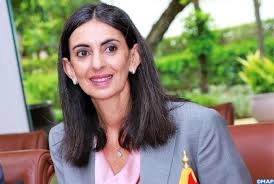The Moroccan government is aiming for a growth rate of 4.6 percent, despite the difficult situation, particularly due to the gloomy international economic climate.
The economy is focusing on the social pillars of the state, the promotion of investment and the creation of jobs. Given the difficult economic situation, citizens and opposition parties such as the PJD have frequently criticized the government over current challenges, notably rising food prices and ongoing strikes.
Following Friday’s meeting of the Council of Ministers, where she made a presentation to King Mohammed VI, Economy Minister Nadia Fettah Alaoui reiterated the priorities of the future finance law. She stressed that these priorities are a continuation of the achievements made at the beginning of the current government’s term.
The main thrust of the draft law is to ensure continuity by strengthening the welfare state and the national economic model. Key objectives include supporting the social pillars of the state, promoting investment, creating jobs, implementing structural reforms and maintaining the sustainability of public finances.
Madame Fettah Alaoui announced an increase in the investment fund from 245 billion dirhams in 2022 to 335 billion dirhams (30.15 billion euros) in 2024, asserting that the 2025 budget will focus on realistic and complementary priorities. This strategy aims to address economic and social challenges based on the government’s past achievements, while ensuring continuity to strengthen the foundations of the social state and the national economic model.
She noted that this new budget will be implemented in an uncertain global context marked by climate crises and geopolitical tensions.
Ms. Fettah also pointed out that in view of the changes in the national context and the economic situation of the kingdom’s main trading partners and their impact on the dynamics of the national economy, the government is targeting a growth rate of 4.6 percent. This is based on the assumption of inflation limited to 2 percent, an increase in foreign demand (excluding phosphates and derivatives) of 3.2 percent, a grain harvest of 70 million quintals and an average price of butane gas set at $500 per ton.
She also stressed that the preparation of the 2025 Finance Law (PLF) coincides with the celebration of the 25th anniversary of the accession to the throne of King Mohammed VI, noting that the sovereign’s reign has been characterized by a process of integral development.
This statement comes at a time when the government is facing criticism from the political opposition and civil society, who blame the rising prices of essential products such as meat, chicken, fish and vegetables.
The Justice and Development Party (PJD) in particular has been one of the critical voices. Citizens also urged the government to intervene to control the situation in the national markets.
RT/sf/ac/lb/as/APA


